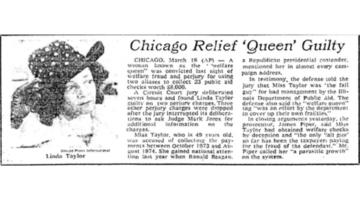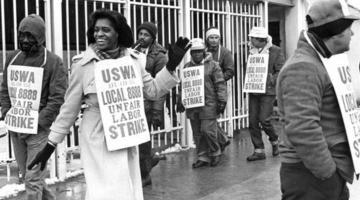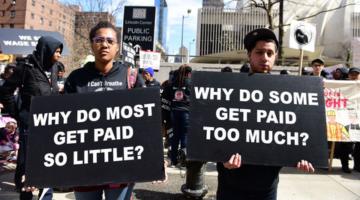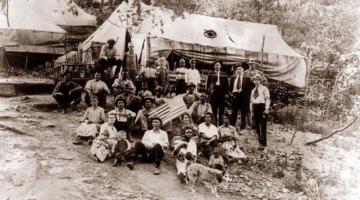TAKEOVER! A Human Rights Approach to Housing is a beautifully written book about poor and homeless people choosing to live and refusing to die.
I can’t recommend TAKEOVER! A Human Rights Approach to Housing, by Cheri Honkala and the Poor People’s Army, enough. Most people don’t like to think about the homeless, whether out of disdain or fear of joining their ranks themselves. Even those who sympathize with the homeless and consider homelessness a national disgrace might therefore shy away from this book, but they’ll be missing out if they do. It’s such a powerful statement and so beautifully written that I couldn’t put it down.
Homelessness in America
The number of homeless people in the United States continues to rise as more and more people pay 30 to 50 percent of their income just to have a roof over their heads, thanks to surging rents and an unprecedented rise in home prices. According to the National Alliance to End Homelessness, a record-high 653,104 people experienced homelessness on a single night in January 2023, more than a 12.1 percent increase over the previous year. The Alliance also reports that between 2019-2023, the number of people who entered emergency shelter for the first time increased by more than 23 percent.
According to HUD’s December 2023 report:
“People who identify as Black, Latino, American Indian, Alaska Native, Pacific Islander, or Native Hawaiian continue to be overrepresented among the homeless population compared to the U.S. population. People who identify as Black, for example, represent 13% of the U.S. population but accounted for 37% of all people experiencing homelessness, and 50% of families experiencing homelessness in 2023 identified as Black.”
In July 2024, Capital B News Atlanta reported that “lower-income Black workers whose stagnant wages aren’t keeping up with rent prices are driving the growth in Atlanta’s homeless population, according to an annual count of the city’s unhoused.” It also said that Black people make up 47% of the city’s population but 86% of Atlanta residents living on the streets, in shelters, or in temporary housing, a 3 percentage-point increase from last year’s census.
From Reagan to Obama
Homelessness has been a growing crisis ever since the Reagan administration attacked the social welfare system, and the housing policies of both Republicans and Democrats have only made it worse. Bill Clinton further attacked welfare even as he put millions of Americans out of work with the North American Free Trade Agreement.
Clinton also shepherded the repeal of banking regulation, codified in the Glass-Steagall Act, through Congress at the end of his term in 1999. That led to the foreclosure crisis that saw millions of owner-occupied homes converted to rental housing, the financialization of real estate, and the bank bailout overseen by Barack Obama, which hugely rewarded the predatory lending practices of Wall Street bankers who had funded his candidacy.
TAKEOVER!
In the face of this escalating crisis, Cheri Honkala and the Poor People’s Army, also known as the Poor People’s Campaign for Economic Human Rights, produced their book about how to take over abandoned federal properties.
In the City of Philadelphia, where the Poor People’s Army is based, scholar Elsa Noterman reports that there are 10 abandoned properties for every single homeless person. Nevertheless, the wait times to receive public housing are years long. Their neighborhood, Kensington, has been devastated by factory closures since the passage of NAFTA.
“Call to Movement: The Politics of Love,” the first section of the introduction to TAKEOVER!, is inspiring, heartrending and, like the rest of the book, beautifully written. It describes Cheri Honkala’s early life after authorities took charge of her, having decided that her mother was too poor to take care of her. She then cycled through nine institutions from age 13 to 16 till she found herself pregnant and unable to pay rent. She managed to buy a car and live in it with her young son until it was hit by a drunk driver, leaving them with nowhere to go. Shelter systems were over capacity and would have ultimately separated them by gender.
“Cheri’s options were to break the law and house herself and her son, or to die. She chose to live and not just for herself. Cheri found others in her situation, and on May 1st, 1990, groups of homeless people—most of them women and children—took over vacant houses across the United States. Their attempts to stay alive while poor would become an enduring movement.”
“As poor people,” they write, “we are taught not to love ourselves. Committing to self-love helps us resist the society that teaches us that we are responsible for our own suffering. . . . We have decided not to die, and we have decided not to let each other die. . . . We are reclaiming the voice of the poor in the form of a movement for and by poor people, rather than being co-opted or forced to suffer in silence. We believe that vacant federal property belongs to poor people, so we carry out housing takeovers to help them give it back to us. This book is about how to do that.”
The introduction also describes the increasing concentration of wealth and the violence of capitalism, which causes poor and working people to “suffer at the hands of the police, the courts, prisons, and detention centers.” It describes their internationalist organizing, their democratically established principles of unity, their commitment to a future based on a cooperative economy and society, and their commitment to peace. Their work, they write, “breaks with the military, prison, nonprofit, and faith industrial complexes.”
After abandoned building takeovers, residents may receive letters from authorities citing code violations that make the building unsafe to them and adjoining property owners. “But,” the writers ask, “is being in a house with lead paint or repair problems more dangerous than being unhoused? Is owning property next to a takeover home more dangerous than owning property next to a vacant building?”
The City of Philadelphia assumes that urban blight threatens public welfare, but by holding onto vacant units without making them inhabitable or giving them to people who will repair and inhabit them, they perpetuate urban blight and all the problems that come with it.
Members of a takeover leadership team of two to five core crew members should be homeless, formerly homeless, and/or poor people “all with roots in the areas of the takeover home(s).” They use resources that can be scrounged to create essential services in takeover homes. Roles for a takeover team include fundraiser/treasurer/fiscal sponsor liaison, intake counselor, location scout, locksmith, electrician, plumber/water liberator, painter, cleaners, attorney, political educator, media spokesperson, move-in-day shot caller, mover, and move-in-day family support person.
“Every person who is part of a Poor People’s Army takeover crew is required to have completed a nonviolent civil disobedience training,” and plans for mutual support and legal support in the event of arrests should be in place.
After identifying a property that is truly vacant, a takeover crew asks, “Is it a safe property to live in? If not, what would it take to make it safe? . . . An ideal takeover home is on a block with similar racial demographics to the residents that will move in. Takeover home residents are usually safer and more inconspicuous on blocks with neighbors who look like them.”
Every step of the process is thought through, including the need to make residents moving in feel safe and in constant contact with the move-in-day family support person. Even the establishment of internet service is planned.
Black Agenda Report Editor and Black Alliance for Peace Co-founder Ajamu Baraka calls TAKEOVER “not just a guide on housing struggles but a historical and theoretical re-articulation of the meaning and evolution of human rights.”
Ann Garrison is a Black Agenda Report Contributing Editor based in the San Francisco Bay Area. In 2014, she received the Victoire Ingabire Umuhoza Democracy and Peace Prize for her reporting on conflict in the African Great Lakes region. She can be reached at ann@anngarrison.com. You can help support her work on Patreon.



















